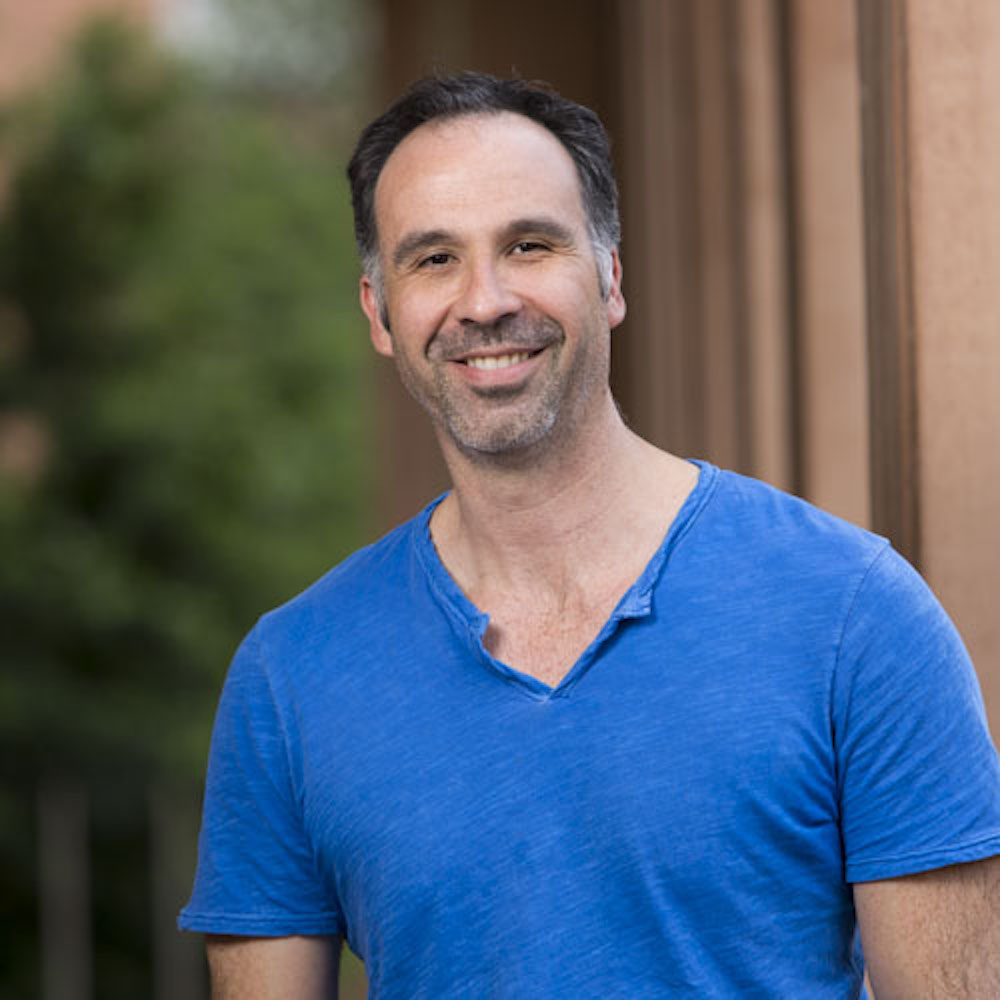Expert Recommendations
Bridging the Gap: Integrating Business Competency in Clinical Child and Adolescent Psychology
Bridging the Gap: Integrating Business Competency in Clinical Child and Adolescent Psychology
By James Childress, CPA
CAC Advisors, &
Armando A. Piña Palacios, PhD
Arizona State University
As clinical child and adolescent psychologists, we’ve mastered the art and science of understanding and addressing mental health challenges. But how prepared are we to translate this expertise into sustainable, impactful practices? Increasingly, practitioners and educators in our field are highlighting a significant gap in our training: a lack of preparation in business principles essential for launching and sustaining healthy practices.
The Challenge: Business Acumen in Psychology Education
Many of us have experienced this gap firsthand: clinical psychology training rarely includes comprehensive instruction in the business of psychology. Faculty, while brilliant in teaching clinical interventions and research methods, often lack the expertise to guide students in business operations, healthcare financing, or strategic practice development.
This gap isn’t just theoretical—it has real-world consequences. Many promising private practices struggle with financial instability, organizational inefficiencies, and clinician burnout, leading to closures that leave patients underserved and teams destabilized.
At the 2024 APA convention, our professional development symposium on this very issue was met with resounding agreement: “We need this!”
Supporting Directors of Clinical Training (DCTs)
Recognizing this need, we are launching a series of micro-trainings dedicated to building the business competencies essential for psychologists in private practice. Our goal is to empower psychologists at all career stages—master’s, doctoral, and beyond—with the foundational knowledge to establish and grow thriving practices.
It has been suggested that graduates from clinical psychology programs (both master’s and doctoral level) have the skills to:
- Understand administrative and business operations in healthcare, education, and research settings.
- Apply principles of equity, diversity, and inclusion (EDI) to foster psychologically healthy workplaces.
- Address ethical challenges in administrative roles with confidence and clarity.
For doctoral-level training, the outcomes go further, focusing on leadership in healthcare financing, grants management, and evidence-based organizational interventions.
Moving Beyond Bootstrapping
Many practices operate in what accountants call the “bootstrapping phase”—relying on limited resources and immense personal effort. This approach is unsustainable and risky, especially for solo practitioners. To break out of this cycle, practice owners must transition to a model of intentional growth, systematically addressing areas of risk and laying the groundwork for long-term stability.
The 7 Roles Every Practice Needs
Drawing from business frameworks, we’ve identified seven critical roles that therapy practices must address to grow sustainably:
- Chief Executive Officer (CEO): Provides the vision and leadership for the practice.
- Chief Financial Officer (CFO): Manages financial planning, budgets, and resource allocation.
- Chief Marketing Officer (CMO): Ensures strategic outreach and patient acquisition.
- Chief Human Resources Officer (CHRO): Builds and manages cohesive, compliant teams.
- Chief Technology Officer (CTO): Oversees data security, compliance, and technological efficiency.
- Chief Operations Officer (COO): Implements systems that support daily operations.
- Clinical Leadership Officer (CLO): Guides evidence-based patient care and outcomes.
For smaller practices, these roles don’t require full-time hires; they can often be filled by part-time staff, consultants, or even resourceful outsourcing.
The Path Forward
Clinical child and adolescent practitioner experts and business advisors advocate for a streamlined approach to integrating business training into psychology education:
- Learn to Delegate: Psychologists don’t need to master every business function. Instead, they need to know how to identify, hire, and manage experts in areas like marketing, finance, and HR.
- Focus on Strategy: Education should prioritize understanding how businesses run over doing every business tasks.
- Start with Financial Planning: Establishing financial clarity is the cornerstone of sustainable practice growth.
By equipping psychologists with these competencies, we can foster practices that are not only clinically effective but also operationally sustainable.
SUGGESTED READING
Baron, O. (2021). Business analytics in service operations—Lessons from healthcare operations. Naval Research Logistics (NRL), 68(5), 517-533. https://doi.org/10.1002/nav.22011
Hossain, Z., Chowdhury, S. S., Rana, M. S., Hossain, A., Faisal, M. H., Al Wahid, S. A., & Pranto, M. N. (2024). Business Innovations in Healthcare: Emerging Models for Sustainable Growth. AIJMR-Advanced International Journal of Multidisciplinary Research, 2(5). https://doi.org/10.62127/aijmr.2024.v02i05.1093
Lazarus, J. A. (Ed.). (2007). Entering Private Practice: A Handbook for Psychiatrists. American Psychiatric Pub.
Nowicki, M. (2024). Introduction to the Financial Management of Healthcare Organizations. ACHE Learn.
Ramori, K. A., Cudney, E. A., Elrod, C. C., & Antony, J. (2021). Lean business models in healthcare: A systematic review. Total Quality Management & Business Excellence, 32(5-6), 558-573. https://doi.org/10.1080/14783363.2019.1601995
Walfish, S., Barnett, J. E., & Zimmerman, J. (Eds.). (2017). Handbook of Private Practice: Keys to Success for Mental Health Practitioners. Oxford University Press.
About the Authors
James Childress CPA is an accountant for therapists and owner of the firm CAC Advisors. He and his team help practices manage their finances, plan for predictable growth, and achieve their entrepreneurial dreams. His team’s proactive approach has helped many clients double their practice sizes in under three years, all through the power of accounting, data analysis, guidance, and financial forecasting. James lives with his partner and two bossy cats in “the town of Wyoming” as he likes to call it. Please address all correspondence regarding this piece to James@childresscpa.com
Armando A. Piña Palacios, Ph.D. is a member of APA’s Interdisciplinary Minority Fellowship Program’s Professional Development Workbook and a member of the faculty in Psychology at the REACH Institute and the School of Transborder Studies at Arizona State University, Tempe.

James Childress, CPA
CAC Advisors

Armando A. Piña Palacios, PhD
Arizona State University
More From Spring 2025
More From Spring 2025
President’s Message
By Regine Galanti, PhD
In Focus: Culturally-Responsive Telepsychology & mHealth
By Henry A. Willis, PhD
Integrating Business Competency in Clinical Child & Adolescent Psychology
By James Childress, CPA & Armando A. Piña Palacios, PhD
Join Us at the Inaugural SCCAP Conference!
By Mary Louise Cashel, PhD
APA 2025 is Just Months Away!
By Kelsie Okamura, PhD & Sarah Dickinson, PhD
The Student View: Introducing Jiyoung Sarah Kim
By Jiyoung Sarah Kim, MS
Candidates for 2025 SCCAP Elections
The New & Improved SCCAP Listserv
By Ana M. Ugueto, PhD, ABPP
Abidin Early Career Award Update
By Jessica L. Schleider, PhD
Congratulations to SCCAP’s Top Downloaded Journal Articles!
Education & Standards Committee Update
By Meghan Miller, PhD & Sunyhe Bai, PhD
Update from SCCAP Representatives to APA Council
By Mary Louise Cashel, PhD & Stephen Hupp, PhD
ABCCAP Update
By Daniel M. Cheron, PhD, ABPP
Fellows Committee Update
By Martha C. (Marcy) Tompson, PhD
Bilingual Psychologists SIG Update
By Erika Garcia-Rocha, PsyD
Clinical Child & Adolescent Practice SIG Update
By Megan Lawson, PsyD, ABPP
Emerging Adulthood SIG Update
By Kelly Schloredt, PhD, ABPP
Infant & Early Childhood SIG Update
By Miller Shivers, PhD
Professional Development & Mentoring SIG Update
By Hannah Ades, BA & Andres De Los Reyes, PhD
Summer Treatment Program SIG Update
By Katie Hart, PhD & Sarah Tannenbaum, PsyD, ABPP
More From Spring 2025
More From Spring 2025
President’s Message
By Regine Galanti, PhD
In Focus: Culturally-Responsive Telepsychology & mHealth
By Henry A. Willis, PhD
Integrating Business Competency in Clinical Child & Adolescent Psychology
By James Childress, CPA & Armando A. Piña Palacios, PhD
Join Us at the Inaugural SCCAP Conference!
By Mary Louise Cashel, PhD
APA 2025 is Just Months Away!
By Kelsie Okamura, PhD & Sarah Dickinson, PhD
The Student View: Introducing Jiyoung Sarah Kim
By Jiyoung Sarah Kim, MS
Candidates for 2025 SCCAP Elections
The New & Improved SCCAP Listserv
By Ana M. Ugueto, PhD, ABPP
Abidin Early Career Award Update
By Jessica L. Schleider, PhD
Congratulations to SCCAP’s Top Downloaded Journal Articles!
Education & Standards Committee Update
By Meghan Miller, PhD & Sunyhe Bai, PhD
Update from SCCAP Representatives to APA Council
By Mary Louise Cashel, PhD & Stephen Hupp, PhD
ABCCAP Update
By Daniel M. Cheron, PhD, ABPP
Fellows Committee Update
By Martha C. (Marcy) Tompson, PhD
Bilingual Psychologists SIG Update
By Erika Garcia-Rocha, PsyD
Clinical Child & Adolescent Practice SIG Update
By Megan Lawson, PsyD, ABPP
Emerging Adulthood SIG Update
By Kelly Schloredt, PhD, ABPP
Infant & Early Childhood SIG Update
By Miller Shivers, PhD
Professional Development & Mentoring SIG Update
By Hannah Ades, BA & Andres De Los Reyes, PhD
Summer Treatment Program SIG Update
By Katie Hart, PhD & Sarah Tannenbaum, PsyD, ABPP
